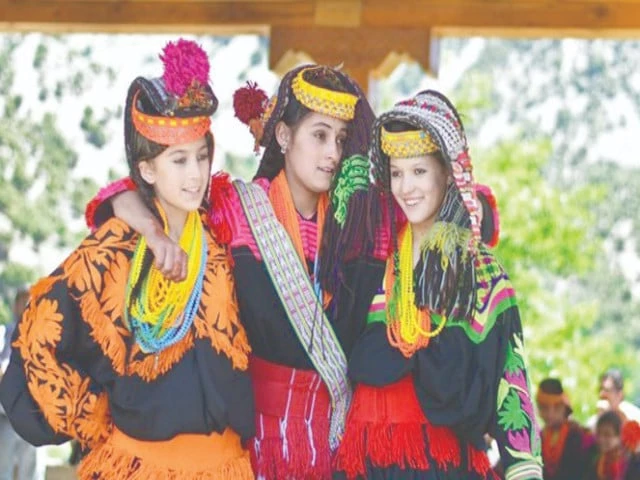From rituals to recognition
Kalash community's heritage enters legal framework

In the secluded valleys of Chitral, where the Kalash people have preserved their vibrant traditions for centuries, a long-awaited moment of recognition is finally within reach.
The Kalash Marriage Bill, the first law of its kind in Pakistan, has crossed a key milestone with its draft formally sent to the Khyber-Pakhtunkhwa (K-P) cabinet committee on legislation.
The initiative, co-drafted by Qamar Naseem, Programme Manager at Blue Veins, and Wazirzada, the Chief Minister's Focal Person on Minority Issues, promises to deliver what the community has long been denied: legal protection and a formal registration system for marriages conducted according to Kalash religious and cultural practices.
"After approval from the provincial cabinet, the legislation will be tabled in the provincial assembly, paving the way for Pakistan's first-ever law dedicated to the rights of the indigenous Kalash community," said Naseem.
He stressed that the bill is not just a legal measure, but "a recognition of their fundamental rights."
Civil society organisations, who have long championed this cause, hailed the development as the culmination of years of sustained advocacy. In a joint statement, they lauded the government's commitment and urged lawmakers to present the bill in the assembly without delay.
For generations, the Kalash people — believed to be descendants of Indo-Aryan tribes and often linked to Dardic or even Greek lineages — have lived in the valleys of Bumburet, Rumbur, and Birir.
Their distinct identity, expressed through colourful festivals like Chilam Joshi, Uchal, and Choimus, and their spiritual worldview, has fascinated scholars and travellers alike.
Yet behind the allure of their heritage lies a stark reality: the absence of a legal framework that protects their basic social and cultural rights. Marriage registration has been one of the most glaring gaps.
Without a formal system, Kalash couples have faced legal complications and social vulnerabilities that other communities rarely confront. The new bill aims to end this historic oversight, embedding their customs within provincial law and safeguarding their unions with official recognition.
The significance of the Bill extends beyond marriage. It represents an acknowledgment of the Kalash struggle to preserve their culture in the face of marginalisation and erosion. UNESCO's recognition of Suri Jagek — the Kalash's ancient system of weather and astronomical observation — as part of humanity's intangible heritage already underscored the global importance of their traditions.
Now, provincial legislation seeks to reinforce that protection on a national level. With only a few thousand people left, the Kalash remain one of Pakistan's smallest minorities.
For them, the progress of the Marriage Bill is not merely procedural. It is a turning point - a long-awaited assurance that their identity, beliefs, and way of life will be formally respected within the country's legal and cultural fabric.
(WITH INPUT FROM APP)




















COMMENTS
Comments are moderated and generally will be posted if they are on-topic and not abusive.
For more information, please see our Comments FAQ